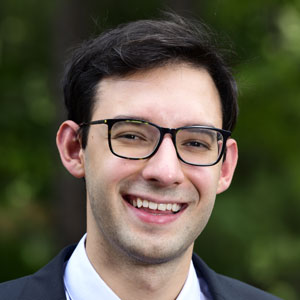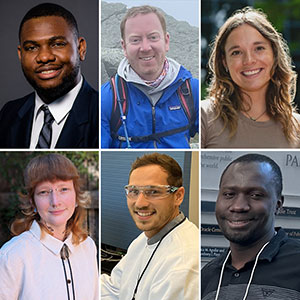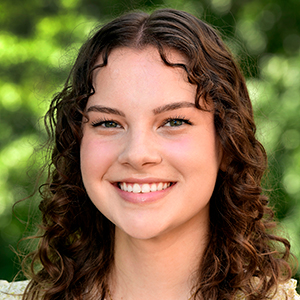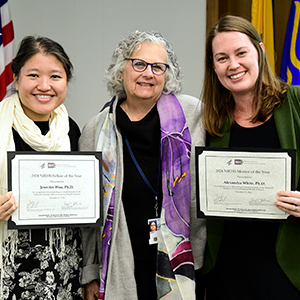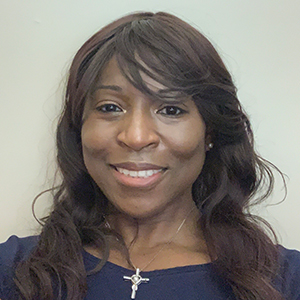Nearly a dozen undergraduates from the NIEHS Scholars Connect Program (NSCP) presented three-minute elevator pitches about their research projects as part of a Nov. 17 Fall Connection event.
“The three-minute presentation has gained wide popularity over the last few years as a research communications skill that supports the development of students’ capabilities to effectively explain their research in a language appropriate to a nonspecialist audience,” said NSCP coordinator Suchandra Bhattacharjee, Ph.D.
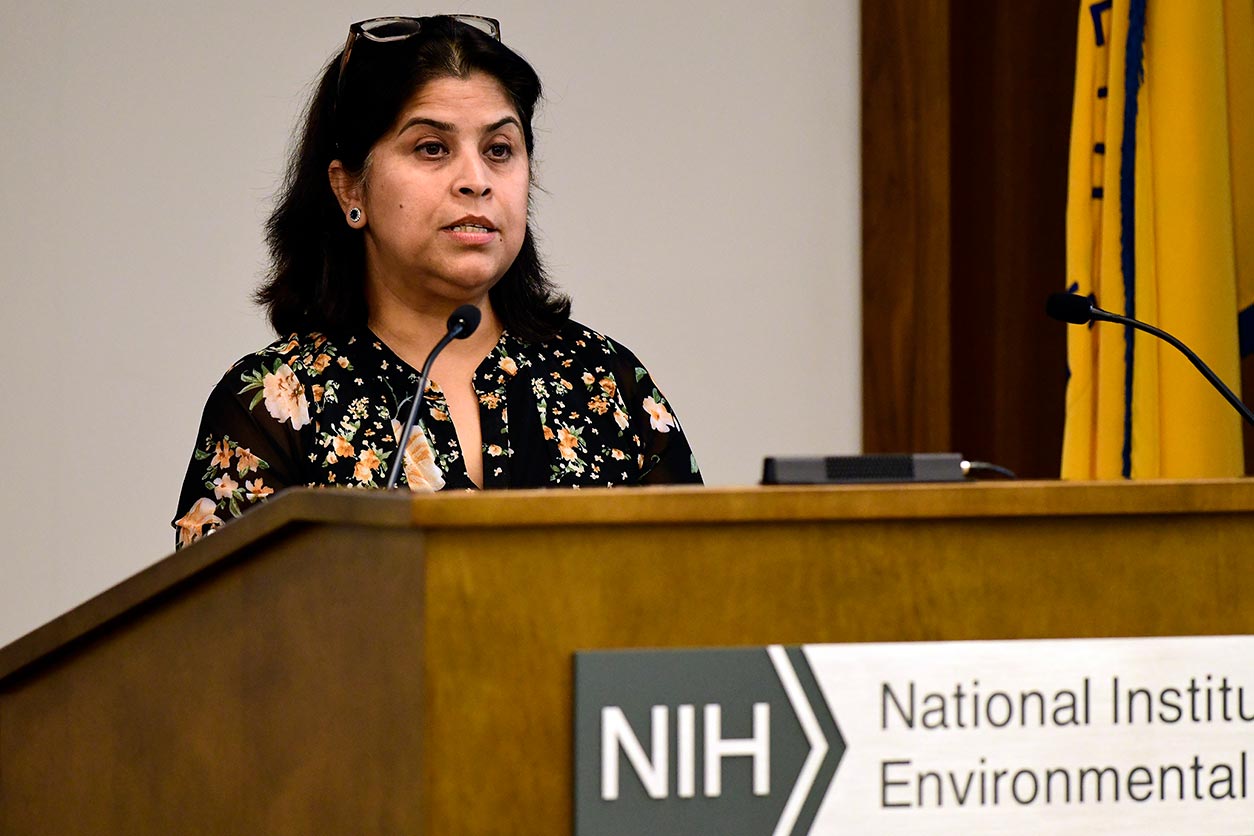
Bhattacharjee explained that an elevator pitch helps scholars introduce their research and its significance in a language that can raise the message to a broad National Institutes of Health community. The exercise also prepares students for medical school interviews, job interviews, formal networking, and casual conversation.
During the fast-paced event, a panel of judges from NIEHS, plus Susan Lankford, Ph.D., from the North Carolina Biotechnology Center, had two minutes to complete evaluations after each presentation.
The winners
Janell Odom, a senior at Shaw University, and Neha Palle, a senior at the University of North Carolina at Chapel Hill (UNC-Chapel Hill), tied for best presenter.
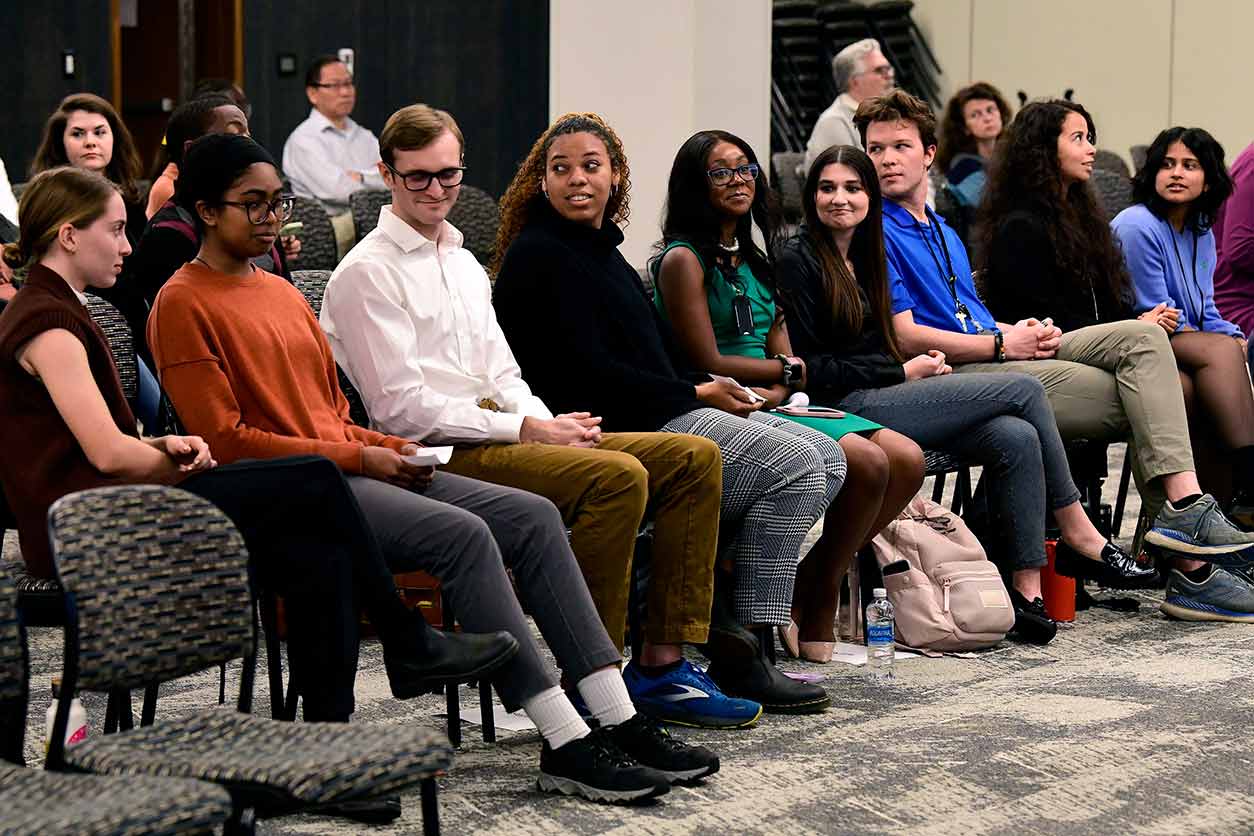
Odom is a biology major who was mentored by Virginia Savy, Ph.D., Lenka Radonova, Ph.D., and Carmen Williams, M.D., Ph.D., from the Reproductive Medicine Group. Her research project focused on the effects of calcium levels at fertilization. By comparing eggs in an animal model with high and normal levels of calcium, she determined that a proper balance of calcium is critical for offspring health.
According to the World Health Organization, one in every six people have infertility issues, Odom noted.
“Our research showed that calcium levels can be altered in various ways, such as due to the environment, genetic mutations, or handling practices at reproductive clinics, which is where most couples go when suffering from infertility issues,” she said. “Knowing that a continuous high level of calcium can cause a negative impact on offspring, we hope we can help prevent undesired outcomes at human reproductive clinics.”
Palle is a cognitive science major who was mentored by David Scoville, Ph.D., and Anton Jetten, Ph.D., from the Cell Biology Group. She investigated how a gene called GLIS3 influences type 2 diabetes risk. Already knowing that a loss of GLIS3 can give rise to diabetes, her research explores whether overexpressing GLIS3 could have a reverse or protective effect.
“We now plan to study the overexpression in a diabetic mouse model, so we can unravel GLIS3 in the context of diabetes mitigation and prevention,” said Palle.
Sarah Combs, a senior and environmental health sciences major at UNC-Chapel Hill, and Fiona Daly, a senior and human biology major from North Carolina State University (NC State), tied for the honorable mention award.
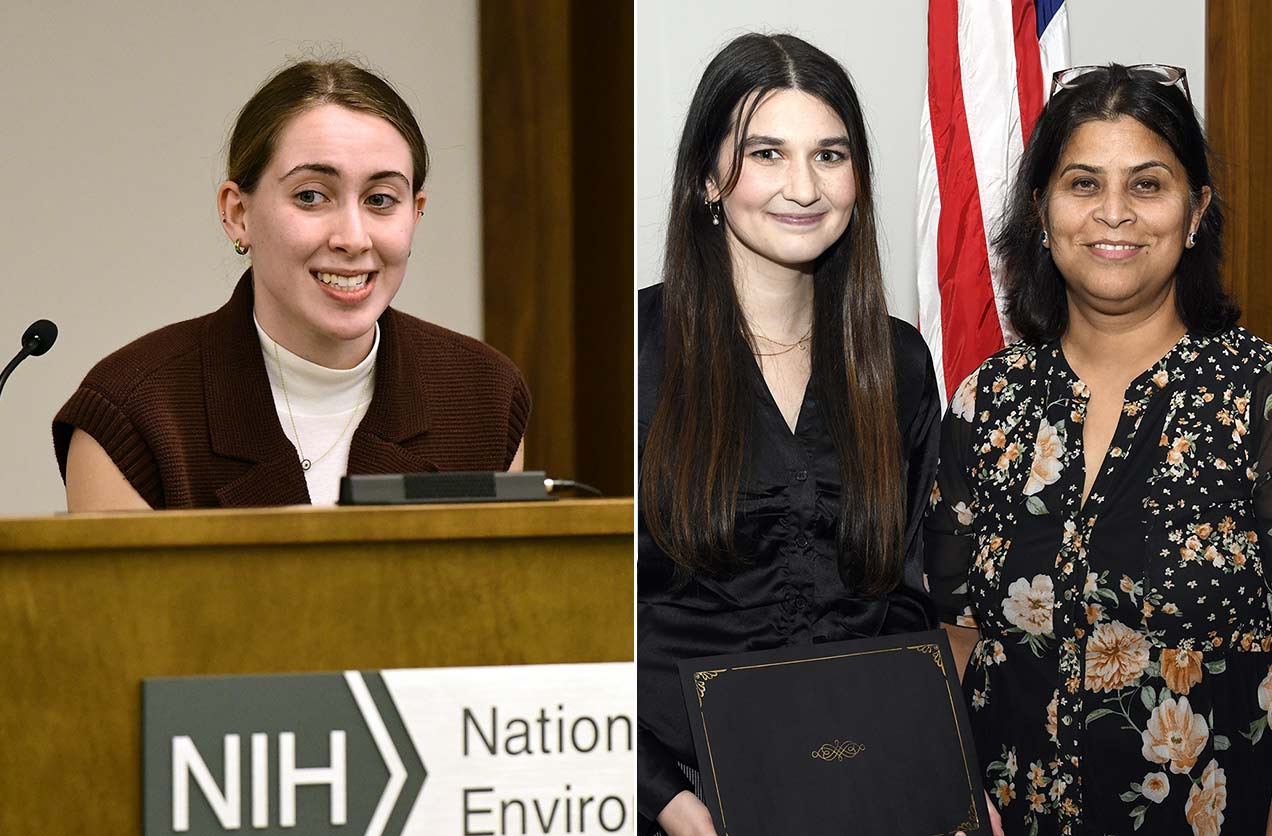
Combs was mentored by Vesna Chappell, Ph.D., Veronica Robinson, and Sue Fenton, Ph.D., in the Mechanistic Toxicology Branch. She discussed how PFAS can affect lactation.
Daly was mentored by Helena Hogberg-Durdock, Ph.D., and Nicole Kleinstreuer, Ph.D., from the NTP Interagency Center for the Evaluation of Alternative Toxicological Methods (NICEATM). Daly discussed how she used an integrated approach to test and assess selected chemicals for their potential toxicity to the developing nervous system.
A lasting legacy
Launched in 2012, NSCP provides a unique opportunity for highly motivated science, technology, engineering, and math undergraduate students to connect with NIEHS and receive training in biomedical research. Students have an opportunity for hands-on mentored research experiences, as well as professional and personal development. The program is committed to encouraging students to pursue careers in basic and clinical investigation.
Scholars work full time during the summer and 15 hours a week during the school year, in addition to doing their classwork. This year’s scholars included four students from NC State, two from UNC-Chapel Hill, and one each from Duke University, Shaw University, Fayetteville State University, and Wake Technical Community College.
(Erica Hinton is a contract writer for the NIEHS Office of Communications and Public Liaison.)





